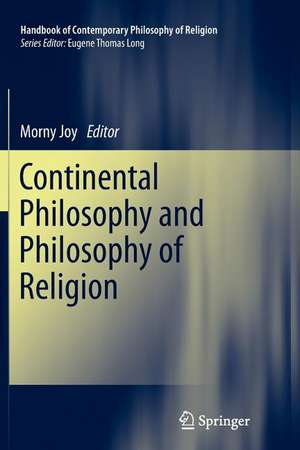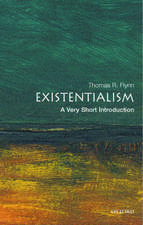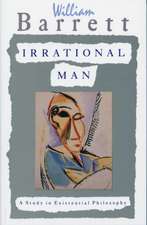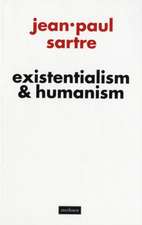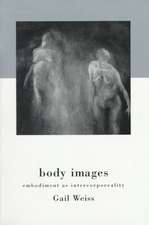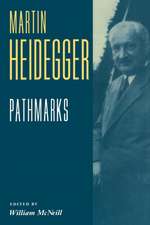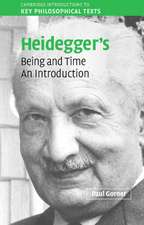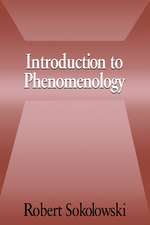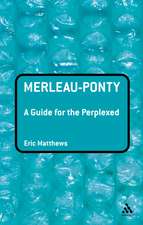Continental Philosophy and Philosophy of Religion: Handbook of Contemporary Philosophy of Religion, cartea 4
Editat de Morny Joyen Limba Engleză Paperback – 2 ian 2013
| Toate formatele și edițiile | Preț | Express |
|---|---|---|
| Paperback (1) | 780.19 lei 6-8 săpt. | |
| SPRINGER NETHERLANDS – 2 ian 2013 | 780.19 lei 6-8 săpt. | |
| Hardback (1) | 645.60 lei 6-8 săpt. | |
| SPRINGER NETHERLANDS – 25 noi 2010 | 645.60 lei 6-8 săpt. |
Preț: 780.19 lei
Preț vechi: 951.46 lei
-18% Nou
Puncte Express: 1170
Preț estimativ în valută:
149.29€ • 156.26$ • 124.26£
149.29€ • 156.26$ • 124.26£
Carte tipărită la comandă
Livrare economică 31 martie-14 aprilie
Preluare comenzi: 021 569.72.76
Specificații
ISBN-13: 9789400734210
ISBN-10: 9400734212
Pagini: 276
Ilustrații: IX, 264 p.
Dimensiuni: 155 x 235 x 14 mm
Greutate: 0.39 kg
Ediția:2011
Editura: SPRINGER NETHERLANDS
Colecția Springer
Seria Handbook of Contemporary Philosophy of Religion
Locul publicării:Dordrecht, Netherlands
ISBN-10: 9400734212
Pagini: 276
Ilustrații: IX, 264 p.
Dimensiuni: 155 x 235 x 14 mm
Greutate: 0.39 kg
Ediția:2011
Editura: SPRINGER NETHERLANDS
Colecția Springer
Seria Handbook of Contemporary Philosophy of Religion
Locul publicării:Dordrecht, Netherlands
Public țintă
ResearchCuprins
Acknowledgements. Introduction.- M. Joy. Paul Ricoeur: Hermeneutics, Philosophy and Religion.- M. Joy. Thinking Otherwise: Derrida’s Contribution to Philosophy of Religion.- E. Armour. Levinas’s Project: An Interpretative Phenomenology of Sensibility and Intersubjectivity.- B. Bergo. The Challenge of Love: Kristeva and Irigaray.- M. Joy. Thinking Differently: Foucault and the Philosophy of Religion.- J. Carrette. Deleuze and Philosophy of Religion.- P. Goodchild. Jean-Luc Marion: Phenomenology of Religion.- C. Gschwandtner. Critical Theory, Negative Theology, and Transcendence.- J. Swindal. Encountering Otherness.- M. Joy.
Textul de pe ultima copertă
This book is a survey of the work of twentieth-century Continental philosophy and its potential impact on philosophy of religion as it is has been practiced predominantly in English-speaking countries. Major French thinkers such as Ricoeur, Levinas, Derrida, Foucault and Marion are included, as well as Luce Irigaray and Julia Kristeva. The influence of the Frankfurt school of critical theory, exemplified today by Jürgen Habermas, is also acknowledged.
In the English-speaking domain, philosophy of religion has been principally identified with analytic philosophy, where the universal presumptions of an abstract reason, especially with reference to matters of belief and its justification, have dominated. In this tradition, truth pertains to an objective frame of reference, which is based both on logical arguments and modes of verification.
In contrast, Continental philosophy does not demarcate a specific area or subject matter that is designated as belonging to philosophy of religion. The boundaries between disciplines and their ideas are much more fluid. As a result, questions regarding religion can be located with reference to specific themes within a worldview that allows for a wide range of influences. In Continental philosophy also there is a greater appreciation of historical and cultural influences on the formation of philosophy's structures and procedures. At the same time, there is a move to greater self-reflexivity and a growing awareness of the need to formulate a distinct ethics of intersubjectivity that seeks justice. The terms of reference have indubitably been changed.
Fascinating developments are today occurring as contemporary Continentalphilosophers explore new possibilities for formulating and responding to traditional philosophical problems in relation to religion from this more expansive perspective.
In the English-speaking domain, philosophy of religion has been principally identified with analytic philosophy, where the universal presumptions of an abstract reason, especially with reference to matters of belief and its justification, have dominated. In this tradition, truth pertains to an objective frame of reference, which is based both on logical arguments and modes of verification.
In contrast, Continental philosophy does not demarcate a specific area or subject matter that is designated as belonging to philosophy of religion. The boundaries between disciplines and their ideas are much more fluid. As a result, questions regarding religion can be located with reference to specific themes within a worldview that allows for a wide range of influences. In Continental philosophy also there is a greater appreciation of historical and cultural influences on the formation of philosophy's structures and procedures. At the same time, there is a move to greater self-reflexivity and a growing awareness of the need to formulate a distinct ethics of intersubjectivity that seeks justice. The terms of reference have indubitably been changed.
Fascinating developments are today occurring as contemporary Continentalphilosophers explore new possibilities for formulating and responding to traditional philosophical problems in relation to religion from this more expansive perspective.
Caracteristici
First comprehensive survey of the work of major Continental philosophers and the implications to philosophy of religion. It treats the work of Jacques Derrida, Gilles Deleuze, Michel Foucault, Luce Irigaray, Julia Kristeva, Jean-Luc Marion, Paul Ricoeur and philosophers of the Frankfurt school, such as Jürgen Habermas. It questions the traditional approach of Anglo-American philosophy and introduces challenging questions
